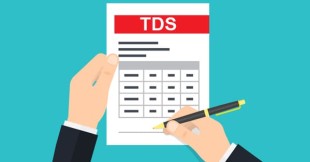Income Tax Articles
Importance of Income Tax Compliance in India
Usama Ansari 17 October 2023 at 08:57This article explores the nuances of income tax compliance, shedding light on its importance and the impact it has on individuals and the nation as a whole.
Impact of Recent Changes on Fixed Income Portfolios of Banks
Affluence Advisory 17 October 2023 at 08:57With the recent changes given by the regulators on the Fixed Income side with reference to Banks, this article is an impact study of the same on the FI portfolio.
Corporate Tax Rate in India Applicable for AY 2023-24
Mitali 16 October 2023 at 16:01Corporate tax is a significant source of revenue for the government and is paid by businesses on their income within the country.
Staying Not Out in the Game of Taxes: World Cup Special!
CA Umesh Sharma 16 October 2023 at 14:21As the Cricket World Cup is ongoing, players are under the spotlight for their performance and earnings. How do these players navigate the complexities of the Income Tax Department to ensure they're not stumped financially?
ITR requirement for VISA purpose
Sparsh Wadhwa 16 October 2023 at 08:40In this article, we will delve into the significance of ITR for visa and the way it performs a important role for the application process.
New Inventory Valuation guidelines under Income Tax
Vivek Jalan 14 October 2023 at 09:07The Finance Act 2023 has taken a major step forward by introducing the concept of inventory valuations by Cost Accountants in specific cases, as granted by Section 142(2A) of the Income Tax Act.
ITR requirement for loan purpose
Sparsh Wadhwa 13 October 2023 at 09:09Income Tax Return (ITR) is an important document that reflects an individual's income, taxes paid, and other financial information. Many banks and financial institutions require ITR documents to process and approve loans.
Section 192: TDS on Salary
Mitali 12 October 2023 at 17:02In accordance with Section 192 of the Income Tax Act, 1961, employers are required to deduct TDS (Tax Deducted at Source) from the salary income of employees.
TDS on Rent u/s 194I, 194IB and 194IC
Mitali 12 October 2023 at 13:27TDS (Tax Deducted at Source) on rent refers to the deduction of a certain percentage of tax by the tenant before making a rental payment to the landlord. The tenant deducts TDS and deposits it with the government. This ensures that the government receives tax revenue on rental income and prevents tax evasion.
RBI with powers allocated under section 35A
Jatin Pal 12 October 2023 at 10:34Section 35A of Banking Regulation Act, 1949 gives power to RBI to give directions to Banking Companies or Banking Company, as the case may be. The Banking compa..
Popular Articles
- TDS Rate Chart For Tax Year 2026-27: With Revised Section Codes in Challans
- Revised Return Due Date Extension
- Tax Deduction Rules for Employee Contributions From April 2026
- Comprehensive Guide to Statutory, Tax & Regulatory Compliances for Hotels
- Section 144C Time-Limit Finally Clarified: No More Litigation on Draft vs Final Assessment Deadlines
- Foreign Assets Disclosure Gets A Fresh Window Under Finance Bill, 2026: Part I
- Finance Bill 2026 - Clause 72: Compassion In Compensation, Clarity In Compliance And Technology In Taxation
- Online Condonation of Delay for Form 9A, Form 10, Form 10B & Form 10BB: Portal Process, Rules and Key Pitfalls
Trending Online Classes
-
DT & Audit (Exam Oriented Fastrack Batch) - For May 26 Exams and onwards Full English
 CA Bhanwar Borana & CA Shubham Keswani
CA Bhanwar Borana & CA Shubham Keswani -
IDT LIVE Exam Oriented Batch | May 2026, Sept 2026 & Jan 2027
 CA Arpita Tulsyan
CA Arpita Tulsyan















 CAclubindia
CAclubindia
